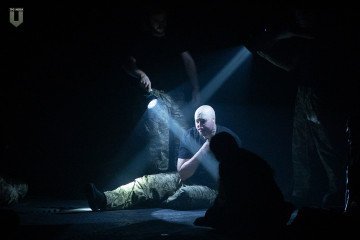There is a way to hand over $209 billion of frozen Russian assets to Ukraine. Experts speculate that it is somewhat risky legally and may harm the long-term financial interests of the Western world. But the US just did it. So, is that really the case?
In April 2024, the United States voted to allocate Ukraine a $61 billion aid package. Less attention has been paid to another decision, which was no less important: the law on confiscating the assets of the Russian Central Bank in favor of Ukraine.
The US holds approximately $6 billion in Russian reserves, a relatively small figure. However, the decision is still historic: Iranian assets frozen in 1979 are still frozen and have not been transferred anywhere in 45 years.
The US actions are a signal to Europe. Data varies, but 190 billion euros of Russian assets are frozen in Belgium alone. The total figure for Europe could reach 250 billion euros.
These funds also generate income. In February 2024 Euroclear, a Belgian financial services company, made news—it earned an extraordinary income of $4.8 billion. Euroclear is an international depositary for global securities, the busiest and largest globally. Along with a limited number of Western firms, Euroclear dominates the world market for a specific service: holding securities across borders—which is at the core of the global financial market.The extraordinary earnings of Euroclear came from the assets of Russia’s Central Bank. These assets make up a significant share of Russia’s sovereign assets that were frozen in Western jurisdictions in the wake of the full-scale invasion of 2022. The total value of these assets—in the United States, U.K., and European Union—is estimated at $280 billion. For two years now, Euroclear has been holding $209 billion of them. And in these two years, they have earned more than $7 billion through interest alone.
However, Europe is in no hurry to transfer either the income or the frozen funds to Ukraine. Europe's arguments are the lack of a legal framework for such actions and the potential threat to the euro as a reserve currency.
“Countermeasures”: the best legal basis for confiscation
There are things universally acknowledged on the legal aspect of the Russian invasion. It is universally acknowledged that Russia engaged in an act of aggression. Russia violated the UN Charter—a basis of international law. By that law, it is now obliged to make reparation.
The UN General Assembly recognized that Russia “must bear the legal consequences”—meaning it must pay for the damages. As the war is still going on, it is impossible to calculate full damages right now. A year ago the World Bank assessed them standing at $411 billion.
Under normal circumstances, any Russian government property located in Europe would enjoy immunity. The rule of immunity derives from the fundamental principle—the principle of sovereign equality of states. The assets of Russia’s Central Bank (RCB) serve a sovereign purpose. So, other states cannot lawfully confiscate them. Yet, there is a doctrine in international law that permits responding to violations with violations. It is called the “doctrine of countermeasures.” The doctrine says that an action considered unlawful may be permitted if taken against an offender, such as Russia. The freezing of RCB assets is one such countermeasure. Confiscation of assets will be countermeasures taken one step further. This doctrine was developed in 2001 by a group of international lawyers working in Switzerland. By coincidence, one of them, Igor Lukashuk, was of Ukrainian origin. He was born in Kharkiv, chaired the international law department at the prestigious Kyiv State University, worked in Moscow, and was a member of the UN International Law Commission. There is no shortage of legal papers arguing why the doctrine of countermeasures may be applied in the case of RCB assets. There is a short brief by the International Center for Ukrainian Victory. There is a lengthy legal report prepared by KSE Institute. There is a memorandum by eight prominent practitioners of international law, including Philippe Sands.
But even this is not enough for Europe, because many are scared of financial difficulties. So what’s it all about?
Why the question of what will happen to the euro is misguided
A significant portion of frozen assets are held in Europe, raising concerns among local officials. While the dollar is expected to face minimal pressure, the euro may suffer. How?
If Europe confiscates Russian reserves, it could potentially deter other reserve holders from keeping their funds in Europe. Countries like China, India, Saudi Arabia, and the UAE might perceive their money as unprotected and seek to relocate it to a safer haven.
However, this argument falls apart upon closer examination: no other truly safe haven exists.
According to international statistics, around 90% of global reserves are held in dollars, euros, Japanese yen, British pounds, and Canadian dollars. The breakdown is as follows:
59% - Dollar.
19.8% - Euro.
5.5% - Japanese yen.
4.9% - British pound.
European fears stem from the possibility that asset seizures from Belgium's Euroclear could lead reserves to flow to ChinaClear, a similar institution in Beijing.
However, this is unlikely. China has long aspired to make its currency a reserve currency, but its efforts have been largely unsuccessful. Today, the yuan's global share is only 2.4%, down from 2.8% two years ago. Other countries lack confidence in China, given its declared communist, authoritarian, and censored nature. While it has a market economy foundation, even the yuan's exchange rate is controlled, and there are two exchange rates: offshore and onshore.
In an article, Nobel laureate economist Joseph Stiglitz argues that there is no adequate alternative to Europe and the US for storing global reserves. China is not a reliable partner, and India's currency is so volatile that even Russia refuses to trade in rupees. There is simply nowhere else to move funds from euros and dollars.
But this is not Stiglitz's primary argument. He believes Europe must understand that such actions signal to dictatorial regimes that "you can do whatever you want, and your money will still be safe." They can start wars, kill people, and influence the world without facing any consequences.
"Seizing Russia's frozen assets would not affect other countries' assets or change the incentives of governments not planning a major war. Moreover, by not seizing these funds, Western countries are signaling that governments waging brutal wars of aggression can violate international law and simultaneously benefit from it to escape the consequences of their actions. Instead, G7 leaders should send a clear message: no country can have it both ways. By deterring other bad actors from violating international law, such seizures could act as a peace-building measure."
If no action is taken now, the situation will remain unchanged. America has made its move. Now it's Europe's turn.
-29a1a43aba23f9bb779a1ac8b98d2121.jpeg)


-554f0711f15a880af68b2550a739eee4.jpg)


-6ead6a9dd508115a5d69759e48e3cad1.jpg)
-7f50738271c122a9b5e663cb80703dd6.jpg)
